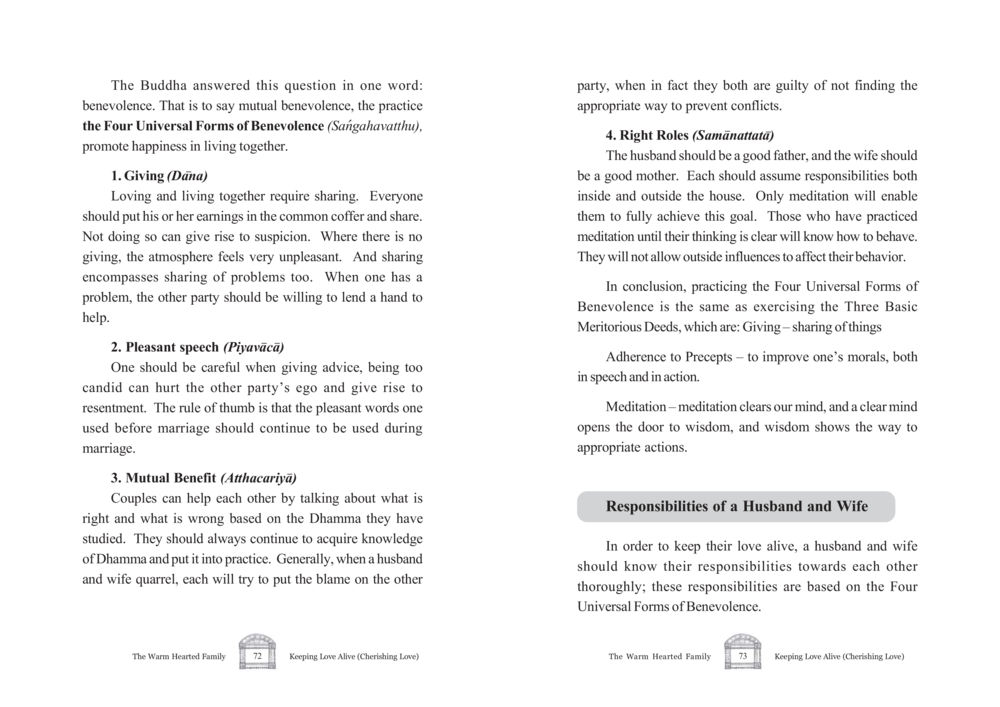Practicing the Four Universal Forms of Benevolence : หน้า 37/207
The Warm Hearted Family : หน้า 37/207 Explore the Four Universal Forms of Benevolence promoting harmonious living through giving, pleasant speech, mutual benefit, and right roles in relationships.
0 ครั้ง

สรุปเนื้อหา
The Buddha highlighted benevolence as key to mutual happiness. The Four Universal Forms include: 1. Giving (Dāna) – sharing wealth and support fosters a positive atmosphere. 2. Pleasant Speech (Piyavāca) – kind words strengthen bonds; advice must be gentle. 3. Mutual Benefit (Athacarīya) – knowledge of Dhamma aids conflict resolution. 4. Right Roles (Samaṇattattha) – a husband and wife must responsibly fulfil their roles, which is enhanced by meditation for clarity. These principles align with the Three Basic Meritorious Deeds: Giving, Adherence to Precepts, and Meditation, guiding couples on how to maintain love and cohabitation based on shared responsibilities.
หัวข้อประเด็น
-Four Universal Forms of Benevolence
-Giving (Dāna)
-Pleasant Speech (Piyavāca)
-Mutual Benefit (Athacarīya)
-Right Roles (Samaṇattattha)
-Responsibilities in marriage
-Dhamma in relationships
-Meditation and clarity
ข้อความต้นฉบับในหน้า
หน้าหนังสือทั้งหมด















































































































































































































